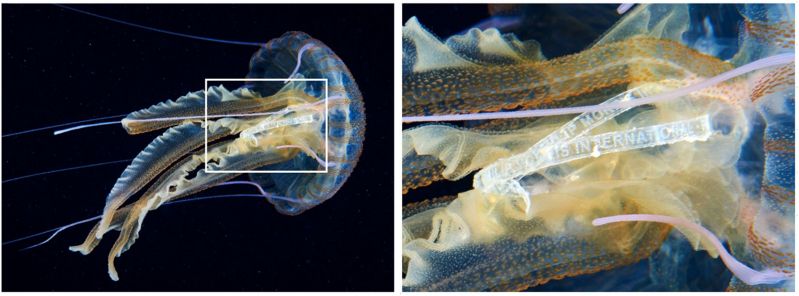Episodic records of jellyfish ingestion of plastic items reveal a novel pathway for trophic transference of marine litter
Published on by Water Guardian Research in Science
First evidence of jellyfish eating plastic :
Abstract
Invertebrates represent the most plentiful component of marine biodiversity. To date, only few species have been documented for marine litter intake. Here, we report for the first time the presence of macroplastic debris in a jellyfish species. Such novel target to plastic pollution highlights an under studied vector of marine litter along marine trophic web, raising further concern over the impact on marine wildlife.
.jpg)
Interaction between plastic debris and jellyfish. High resolution images showing a swimming mauve stinger P. noctiluca observed in the field (left) with a plastic lace of a famous cigarette brand among the oral lobes (white square, enlarged on the right).
Media
Taxonomy
- Marine
- Marine litter
- marine research
- Marine species